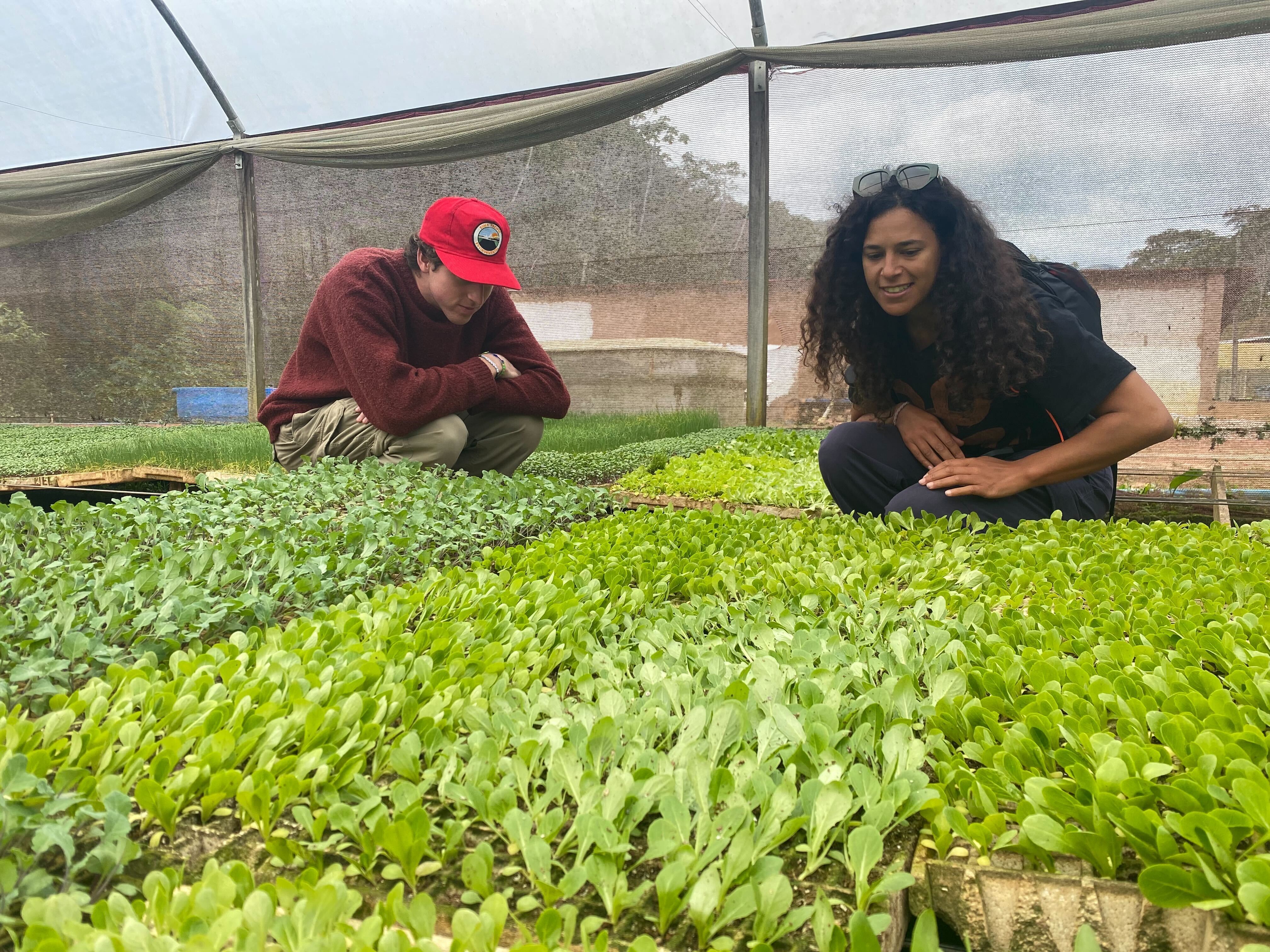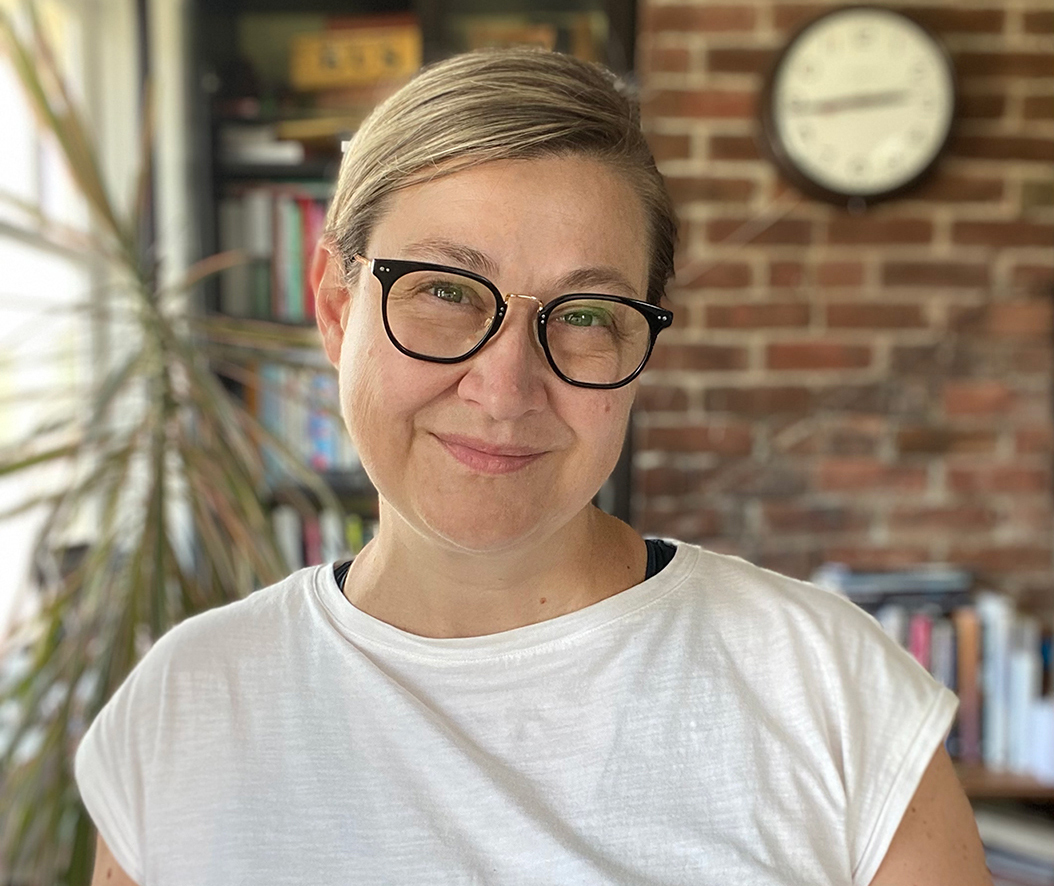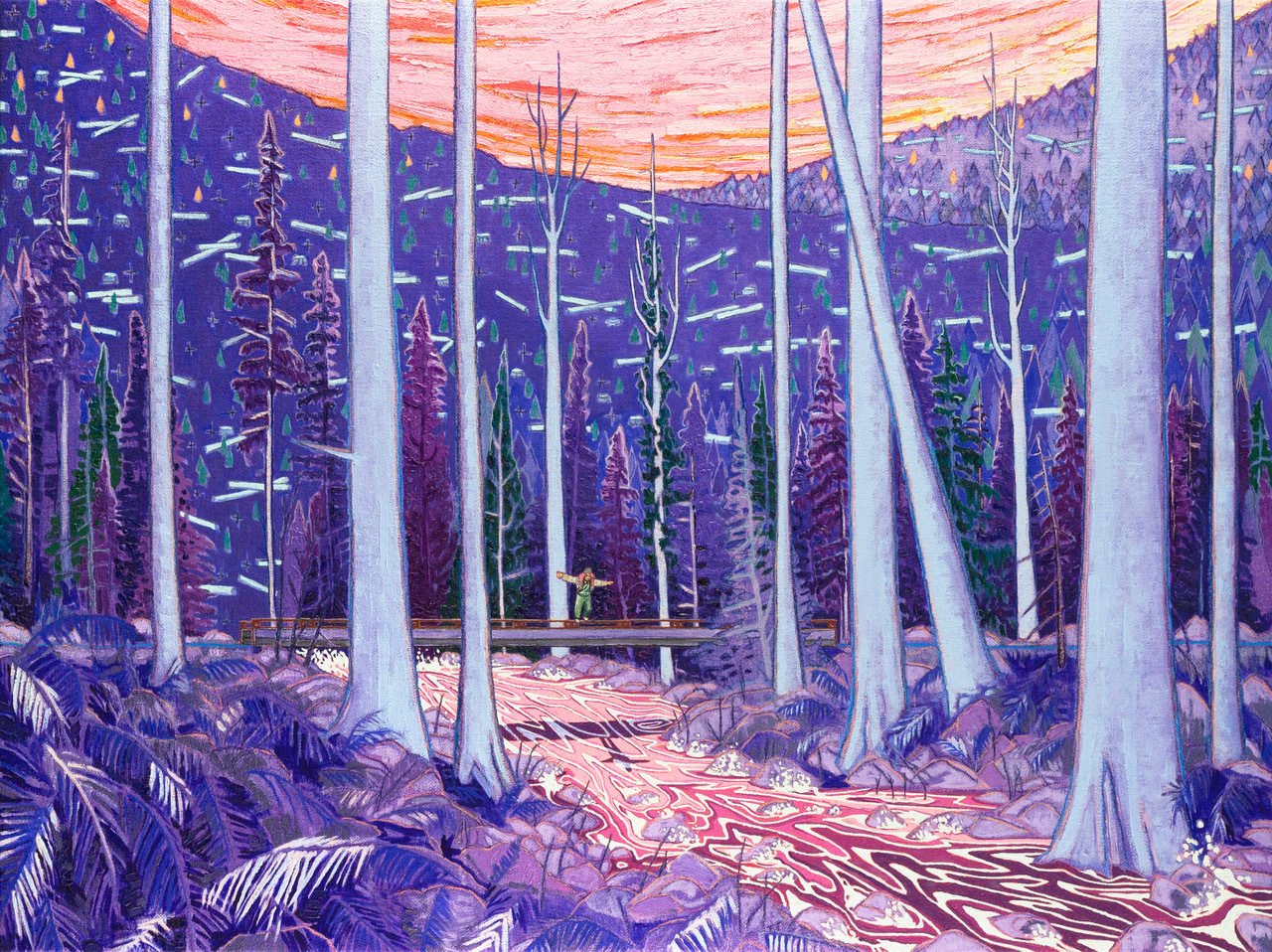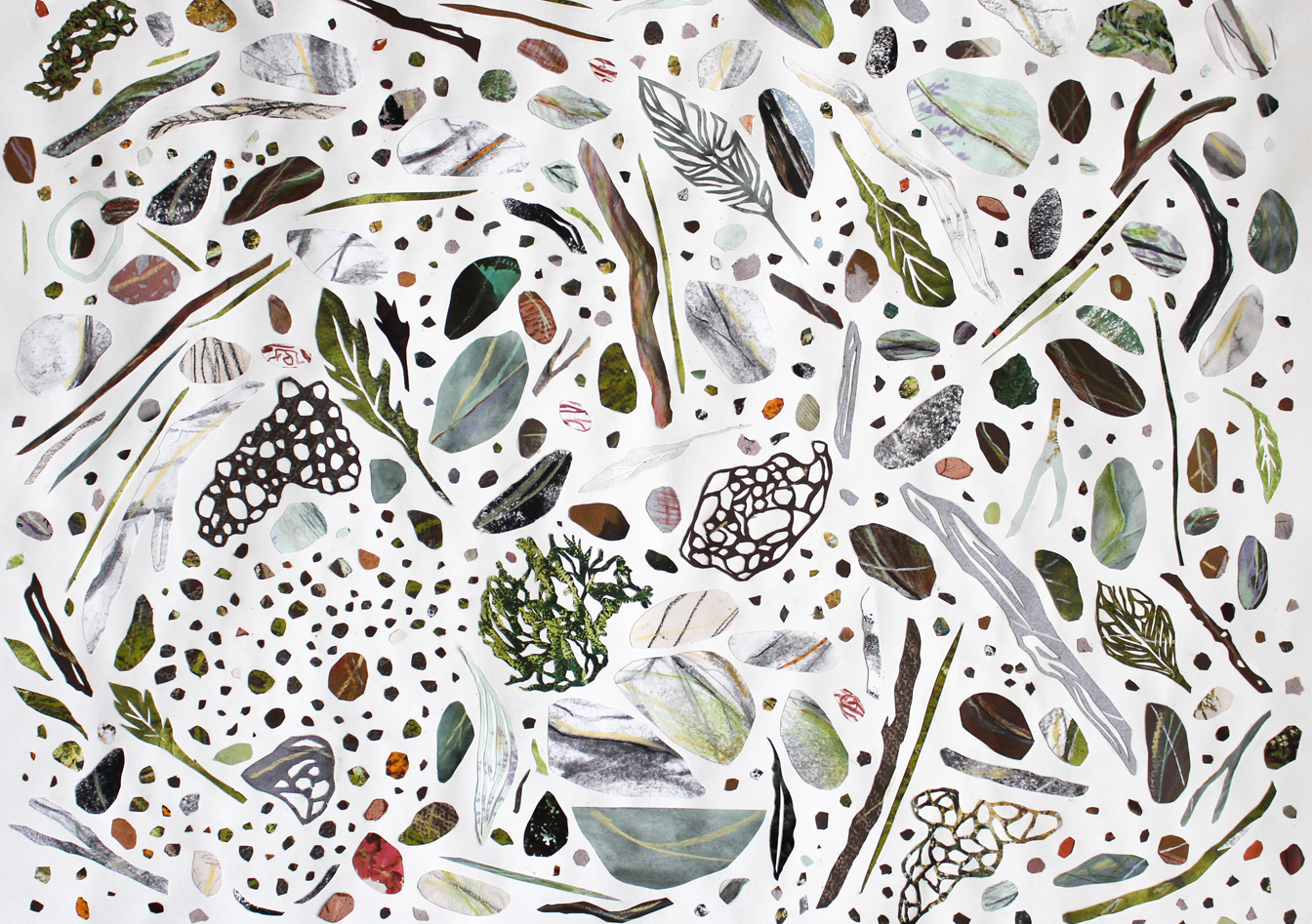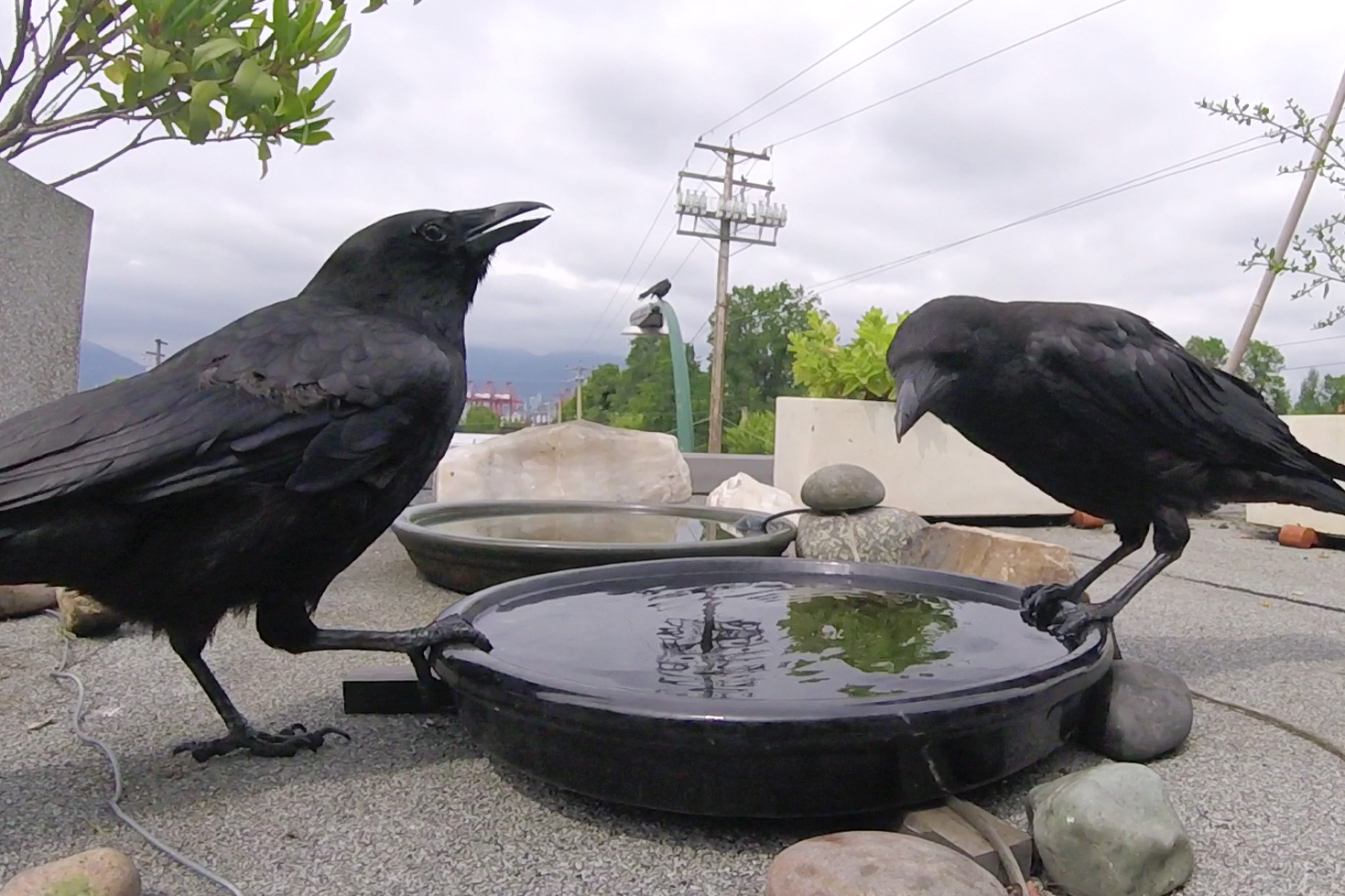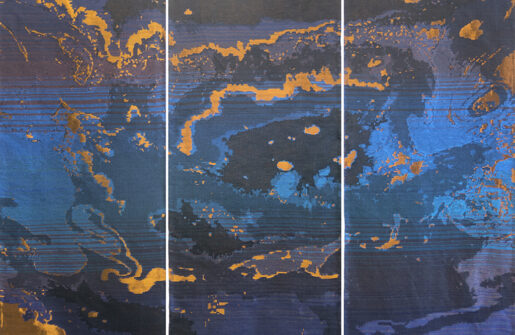Climate Justice Field School Named Finalist for Don Norman Design Award

A program designed by Howsem Huang (MDes 2024) for the Designing Climate Justice Symposium. (Photo courtesy CJFS)
Posted on | Updated
The year-long project brought together researchers and designers from ČŦÃņēĘÆą, the City of Vancouver and community to explore new ways of designing just climate futures.
Vancouverâs Climate Justice Field School (CJFS) has been named a finalist for the prestigious .
Co-hosted in 2023 by the ČŦÃņēĘÆą (ČŦÃņēĘÆą) and City of Vancouver Solutions Lab, the CJFS brought together cultural and social justice practitioners with sustainability staff for 20 sessions involving deep learning and relationship-building.
The project emerged following the creation of the community-written , which outlines the vision, guidance and accountability for a just climate future centred on the perspectives of those disproportionately impacted by climate change.
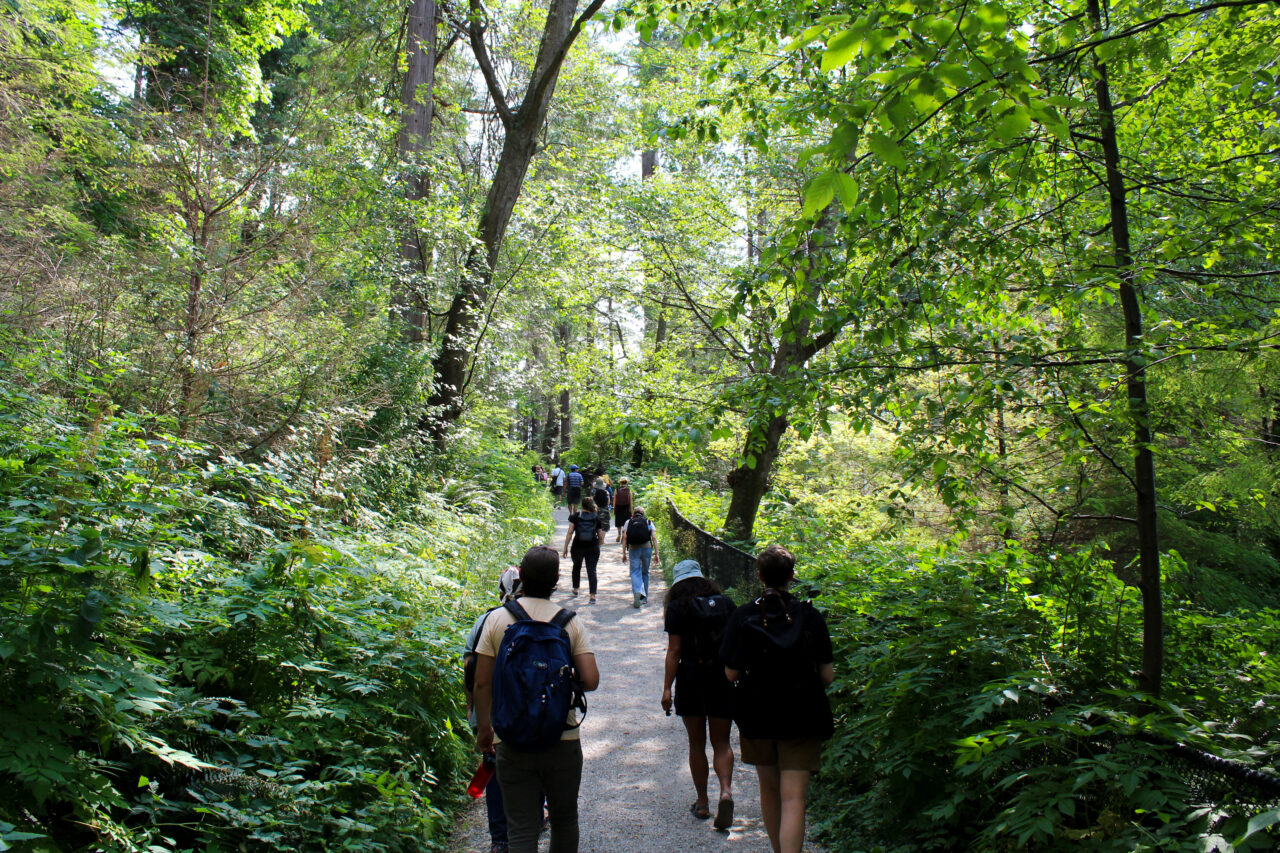
A CJFS group walk through Stanley Park trails led by Dan Straker. (Photo by Kamila Bashir / courtesy CJFS)
âEnacting climate justice and adaptation to changing climatic conditions through lenses of social and ecological justice will require new processes that centre collaboration, sharing power and nurturing relationships,â the team writes in their final report.
âWe noticed that many aspects of implementing this work would require shifts in the current ways that power is held, wielded and expressed inside the colonial institution of a city government. We wanted to continue experimenting with and learning about practices of shifting, sharing and relinquishing power, practicing different forms of accountability and cultivating different types of relationships in service of climate justice.â
The Don Norman Design Award recognizes early-career practitioners and educational organizations whose projects impact society. Learnings from the Climate Justice Field School are gathered in a publication titled .
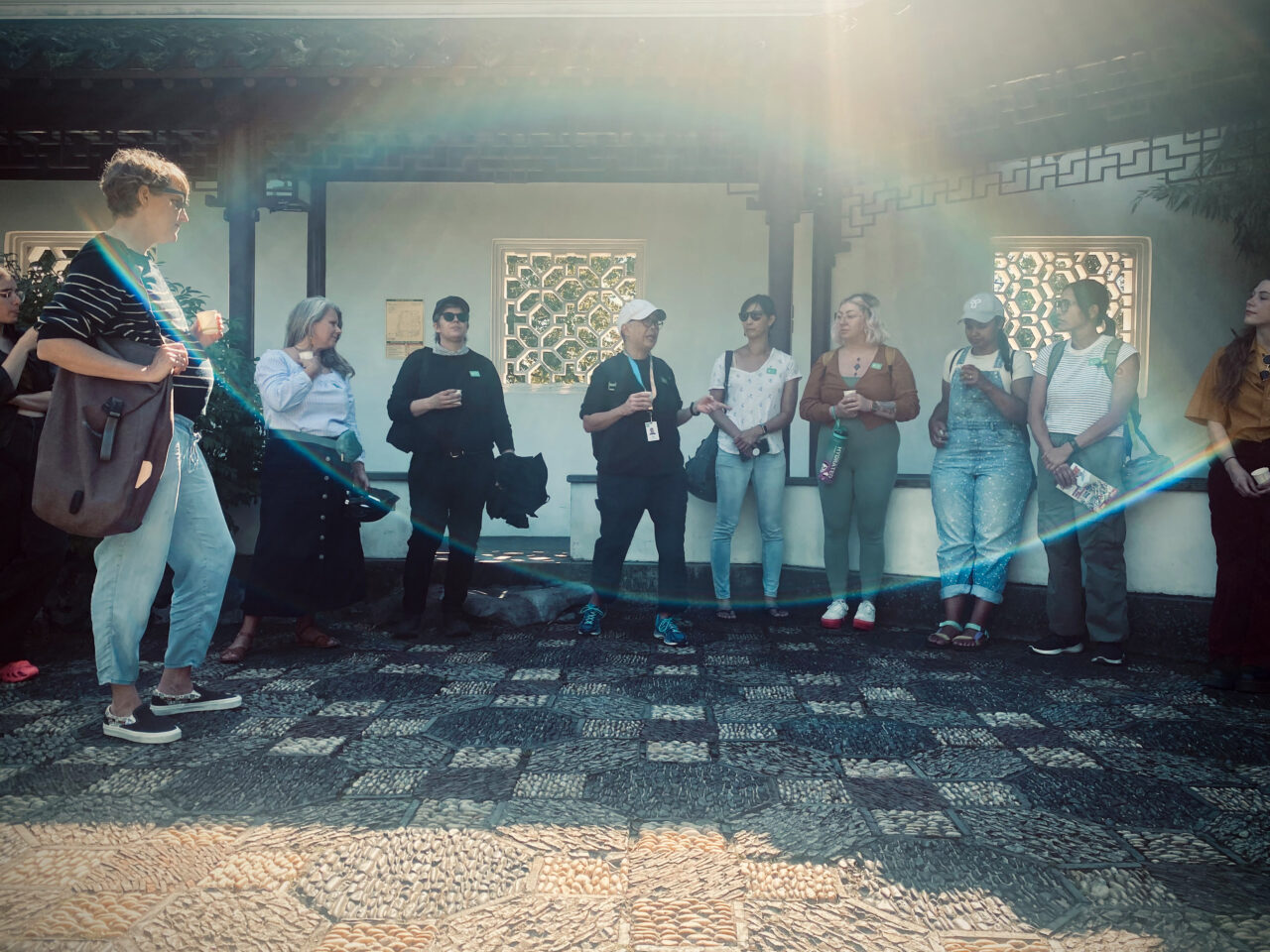
Interdisciplinary artist, writer and educator Laiwan (BFA 1983) leads the group through Dr. Sun Yat-Sen Classical Chinese Garden. (Photo by Laura Kozak / courtesy CJFS)
The core team included ČŦÃņēĘÆą design researcher Laura Kozak, post-doctoral fellow Lindsay Cole (UBC/ČŦÃņēĘÆą), Indigenous process lead Skylar Sage, City of Vancouver Solutions Lab systemic designer Lily Raphael, and research assistants Kamila Bashir (BDes 2024), Eden Luna Goldet (MDes 2024), ZoÃŦ Laycock (MFA 2024) and Howsem Huang (MDes 2024).
The CJFS project included several phases over a year, including planning sessions, public engagements, sharing circles, site visits and workshops. The team also led the as part of the Systemic Design Associationâs . Co-hosted by ČŦÃņēĘÆą and the City of Vancouver, the symposium offered two days of workshops, lectures and participatory exercises.
Stories of the CJFS are also held within a traditional star blanket by artist ZoÃŦ Laycock, which was presented in Montreal at the .
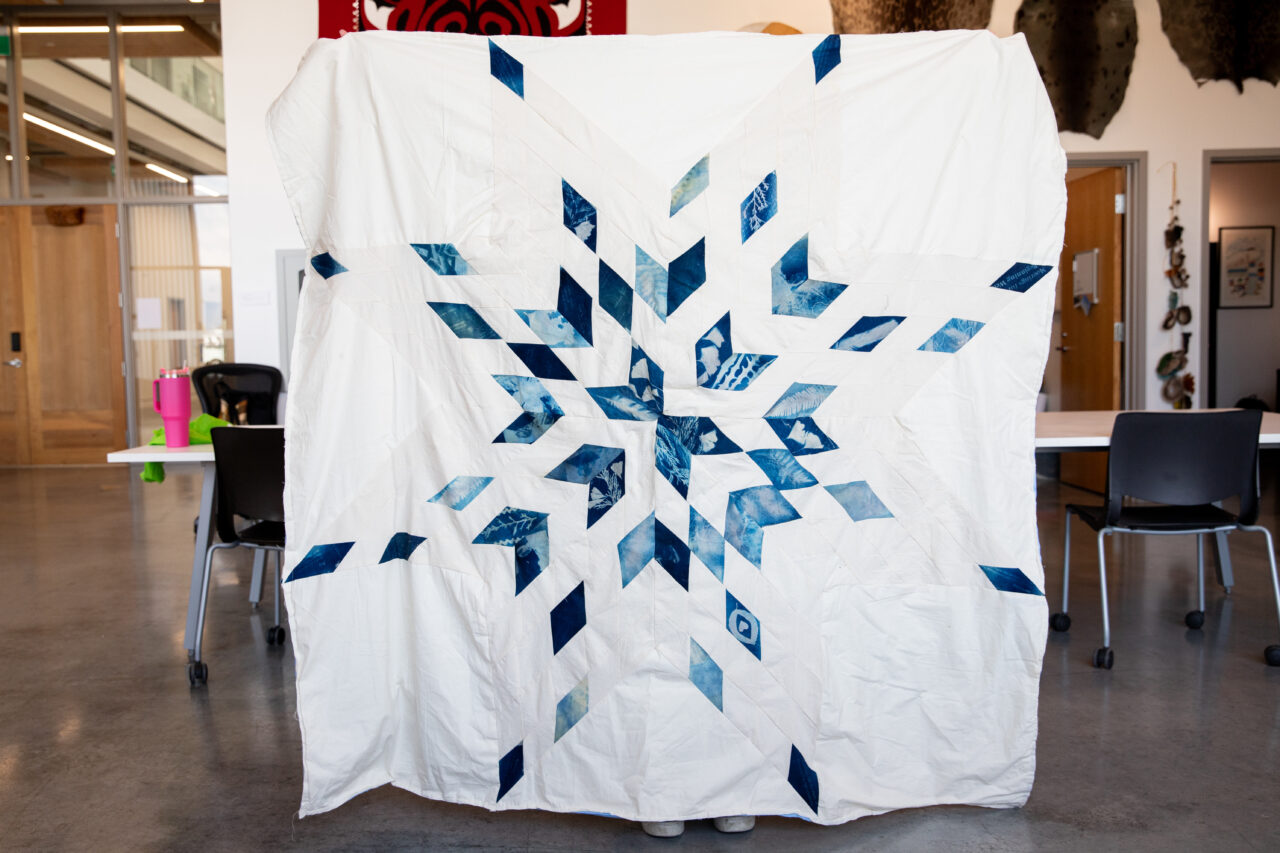
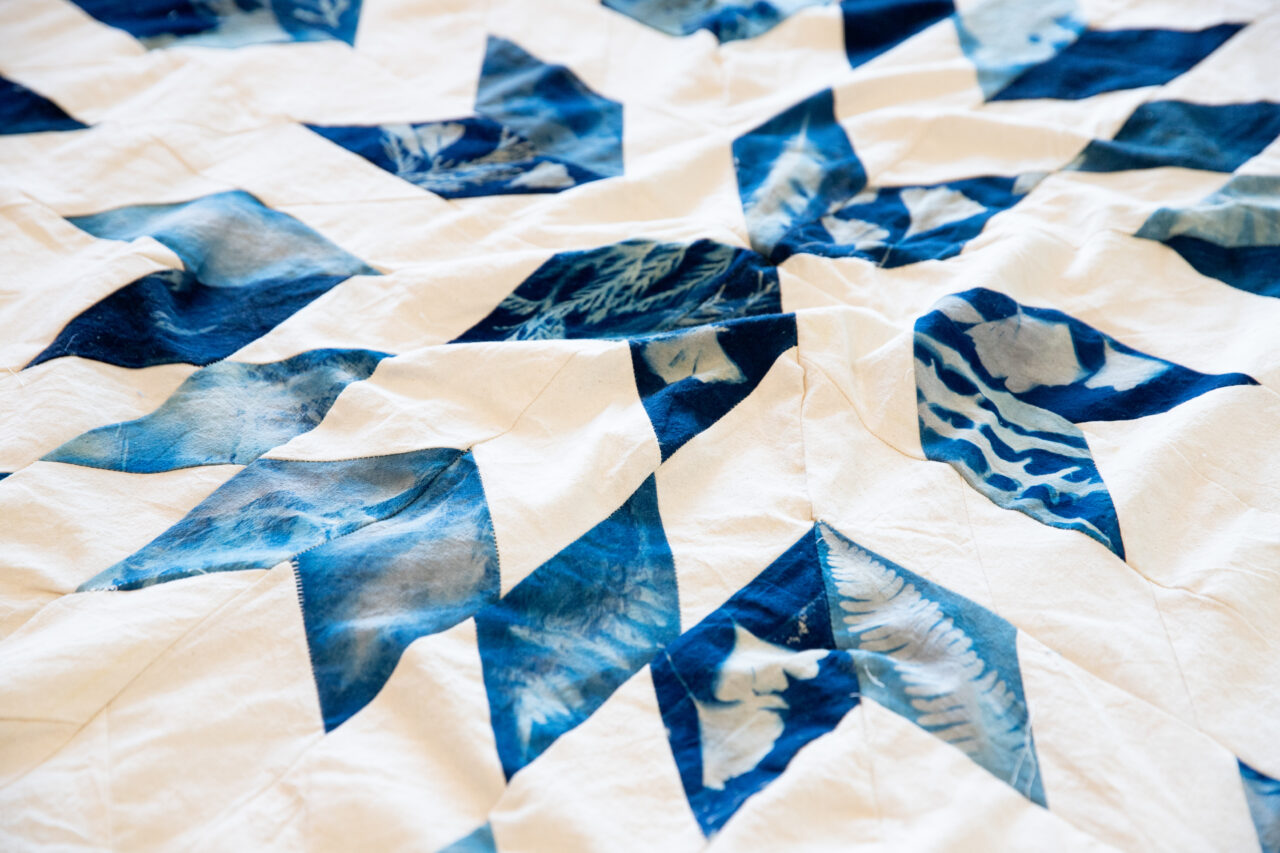
(Top): Artist ZoÃŦ Laycock, at the Aboriginal Gathering Place at ČŦÃņēĘÆą in September 2024, displays the star blanket she created in collaboration with Climate Justice Field School Participants (detail at bottom). (Photos by Perrin Grauer)
In her words, the blanket is âa visual representation of the unique conversations, listening and perspectives shared: each individual coming into the discussion carries worlds of learning as we move through place and events. The star blanket lives as a representation of not only the whole of the Climate Justice Field School but also of all the experiences, communities and those who make up each of us as individuals coming together.â
Read the publication online now.
